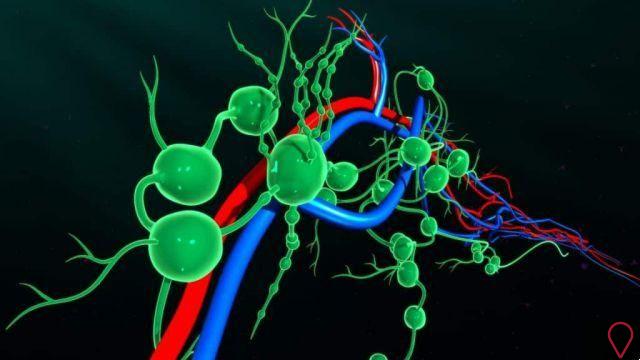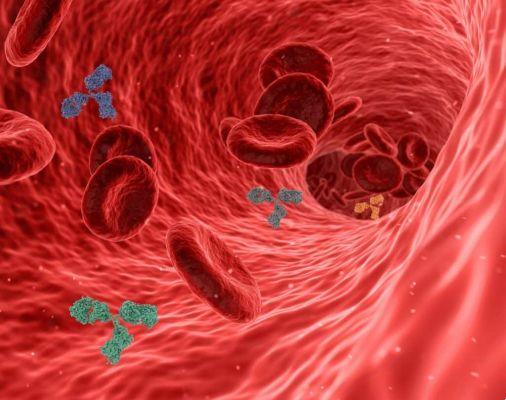He was even known as the supposed bearer of the soul of the human being, in distant times, for having functions so little known and until today somewhat mysterious. We are talking about the thymus, a gland that is very close to the heart and that is essential for the maintenance of our immune system, despite being so unknown to people.
We have prepared an article that reveals what the thymus is, its main functions, how it acts on our immune system and what are the most common problems that can affect it, in addition to its spiritual meanings, for those who are open to believe. that science and spirituality are not mutually exclusive, but are added together. Take all your doubts about the thymus right now!
What is the thymus and what are its functions?
The thymus is a gland. Glands are structures formed by epithelial tissue of a specific type: the glandular. Their function is to synthesize and release substances, such as hormones. The thymus, therefore, is a gland that actively participates in the regulation of the body's immune defense. It is considered one of Organs primary organs of the lymphatic system, a complex network of vessels and small structures, the lymph nodes, that transport a fluid called lymph from the tissues to the circulatory system. In simpler words, the lymphatic system is a major contributor of white blood cells, which helps protect the body against invading microorganisms.

The thymus is located in the chest, in front of the heart and between the lungs. Its size varies according to the development of the body. Between the time a person is born until adolescence, this gland reaches 40 grams. From then on, it begins to have its size reduced with advancing age, but this reduction does not cause its functions to be lost, despite causing a decrease in the immunity of the elderly.
Thymus functions
Perhaps the thymus is not popularly known, because explaining its role is not as simple as contextualizing the function of the heart or lungs. The main function of the thymus is the maturation of T lymphocytes. Complicated, right? So let's explain.
Bone marrow is responsible for the production of immature lymphocytes. After this process, they migrate to the thymus, which synthesizes and matures them, transforming them into T lymphocytes. After being matured in the thymus, T lymphocytes enter the blood network and travel to the lymphoid tissues. It is important to say that the thymus is a very “intelligent” gland, because it only releases T lymphocytes when it “analyzes” and “recognises” that they will not be counterproductive to the body's natural proteins and antigens.

To have a dimension of the importance of the thymus, the fewer T lymphocytes we have in our body, the lower our immunity and the more vulnerable we are to bacteria, viruses and other types of risks that can make us sick.
the parts of the thymus
The thymus is divided into two lobes, which are joined together and also by numerous lobes of different sizes and shapes. The two main lobes are not usually symmetrical and can vary in shape and size. Most commonly, the right lobe is slightly smaller than the left lobe. In addition, the thymus is lined with a “capsule” of connective tissue.
The thymus lobes also have two subdivisions: the cortex, the peripheral region, with a large number of lymphocytes, as it is responsible for an intense production of them; and the medulla, the central region, with few mature lymphocytes.
In addition to lymphocytes, other cells also make up the thymus: the reticular and macrophages. All these cells, when not selected, matured and released by the thymus into the bloodstream, are destroyed by macrophages.
The thymus in body language
According to Cristina Cairo, a specialist in alternative therapy called Body Language, which studies the relationship between diseases of the physical body and our emotions, the thymus is the organ of happiness, as it is related to our soul and our essence. As it is responsible for maintaining our immune system, thymus dysfunction compromises vulnerability to diseases and infections.
While we are emanating and producing good feelings, such as satisfaction, joy, love and contentment, we strengthen our immune system, as we are “feeding” the thymus with good sensations. When, however, we experience moments of sadness, disappointment, anger, among other negative feelings, the tendency is that this compromises our immune system and we become more susceptible not only to simpler diseases, such as the flu, but also to more serious infections, such as meningitis and pneumonia.

Staying positive and vibrating good feelings and emotions, therefore, is essential for us to protect our immune system, which has the function of protecting the rest of the body. Trying to live amid good emotions is like living protected by a shield that prevents the body from getting sick.
main thymus problems
As T lymphocytes are responsible for maintaining the balance of the human immune system, any problem related to the production of these cells can cause problems in a person's immunity.
Thus, the main problem related to the thymus is immunodeficiency, which can occur when there is a defect in the development of this organ or a deficiency in the production of lymphocytes. Those who go through this immunodeficiency framework are more susceptible to infections caused by viruses, bacteria and fungi.
If not treated properly, the immunodeficiency can progress to severe combined immunodeficiency (SCID), which is a condition caused by the combined deficiency of T, B and NK cells.
There are other diseases that can affect the thymus, most of them genetic and hereditary – such as thymoma, a tumor in the thymus that can cause several autoimmune diseases, such as thymoma-associated multiorgan autoimmunity (TAMA) and myasthenia gravis. There is also a very rare disease associated with the thymus: DiGeorge syndrome.
DiGeorge syndrome
DiGeorge syndrome is a very rare disease caused by a defect in the thymus from birth. This disease can be diagnosed even during the pregnancy of the baby, in the ultrasound exam. It is a syndrome caused by changes in the long arm of chromosome 22, which characterizes it as a genetic disease.
The symptoms of DiGeorge syndrome are quite variable, and each child presents a different picture, because the genetic alterations are different in each case. The main consequences of this disease can be:
• delay in growth and development;
• heart problems from the first years of life;
• mental disability;
• learning and communication difficulties;
• compromised immune system;
• skin in bluish tones;
• ears lower than normal;
• cleft palate;
• small or fish-like mouth;
• eye malformation;
• other problems with breathing, weight, speech, and spasms and susceptibility to infections, such as meningitis, pneumonia, and tonsillitis.
What to do to have a healthy thymus?
As explained in the previous topic, most problems related to the thymus are genetic and hereditary, so their consequences will be noticed even in pregnancy or in the first years of a child's life. In adulthood, the problems that can affect the thymus are tumors and reduced production of T lymphocytes. These two dysfunctions will cause low immunity.

If you notice that you have been suffering from a high number of infections, flu or other diseases caused by viruses and bacteria, it is worth making an appointment with an endocrinologist - a doctor responsible for diagnosing and treating the glands - and expressing your recent discomforts and your concerns about to the functioning of the thymus. Only a professional will be able to guide you about taking tests or starting hormonal treatment to overcome the defective production of T lymphocytes.
facts about thymus
1. The name of this gland comes from the Greek word “thymus”, which can be translated as “vital energy”. It is believed that this name was given by the Greeks for the fact that the thymus is very centralized in the chest, next to the heart.
2. The first scholar to realize that the thymus changed in size throughout life was the Greek physician and philosopher Claudius Galen of Pergamum, who lived in the first century AD.
3. In the past, some people and even religious currents believed that the thymus guarded the person's soul, given its location and its apparently mysterious function, as it had been little studied;
You may also like
- Stay tuned for foods that can help boost immunity!
- Joy – The key to maintaining thymus gland vitality
- Read on and find out: can illnesses be caused by the chakras?
- The mental benefits of being a sports fan
- Learn more about activating the fountain of youth: how to do it?
4. The thymus was the last of Organs most important organs in the human body to have its functions fully revealed. Its importance was only fully revealed in 1961, by the French physician Jacques Miller, who surgically removed the thymus from mice to study its functioning;
5. The name of T lymphocytes is a tribute to the organ that produces them, the thymus.
Little known, but essential to our immune system and so that we are not vulnerable to infections that can surprise us throughout our lives, the thymus is still poorly understood by science. And it is possible that a lot will be discovered about him in the future, but what we know today is that you need to keep an eye on your immunity. If you realize that you are vulnerable to viruses and bacteria or that you are constantly experiencing illness, look for an endocrinologist and take care of your thymus, which takes care of you so much.

























